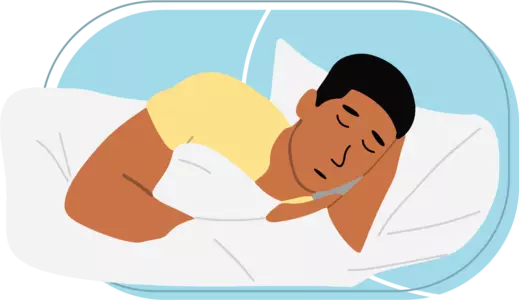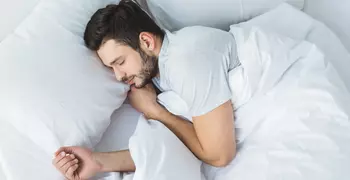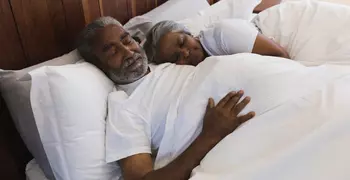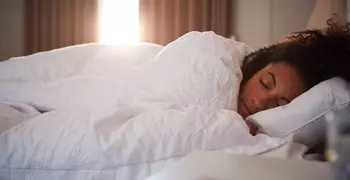Sleep
The Key to a Healthy and Productive Life
Sleep is essential for our physical and mental health. When we don't get enough sleep, we're more likely to experience a variety of problems, including fatigue, difficulty concentrating, irritability, poor judgement and mood swings. Sleep deprivation can also have a significant impact on our work and personal lives.
One of the biggest problems with sleep deprivation is that it can lead to revenge sleep
procrastination. This is when we stay up late to engage in activities that we didn’t have time for
during the day. “No worries, sleep can come later”, until it doesn't. This can create a vicious
cycle, where we're constantly sleep-deprived and struggling to wake up refreshed in the
morning.
Get better sleep
Take charge of your sleep today.
How's your sleep now? Set a specific goal
There are a number of things we can do to improve our sleep quality:
- Establish a healthy sleep routine and stick to it as much as possible, even on weekends. This will help to regulate our body's natural sleep-wake cycle.
- Create a relaxing, pleasurable bedtime ritual. This could include reading a book or listening to calming music.
- Avoid watching TV or using electronic devices in the hour before bed, as the blue light emitted from these devices can interfere with sleep. If you must be on a device, dim the screen as much as possible and turn on the blue light filter (Night Mode on Apple devices, Night Light on Android) in settings.
- Research suggests a warm bath or shower an hour or two before bedtime can help you unwind and fall asleep faster. Climbing out of hot water drops your core body temperature, a circadian signal for bedtime.
- Minimize evening caffeine and alcohol. Even in moderation several hours before bedtime alcohol can disrupt sleep.
- Try to wake up at the same time each morning and get bright light, sunlight is best, first thing in the morning. If you have to sleep in because you are so tired, don't sleep in more then two extra hours.
It's also important to make sure that our bedroom is dark, quiet, and cool. Darkness helps to promote the production of melatonin, a hormone that promotes rest. Noise can disrupt sleep, so it's important to create as quiet an environment as possible. A cool, but not cold, temperature is also ideal for sleep.
If you have taken all of these steps and you're still struggling to get enough sleep, talk to your doctor. They can rule out any underlying medical conditions and help you develop a sleep plan.
Fun Fact: Sleep deprivation has a significant impact on the economy. According to a study by the RAND Corporation, sleep deprivation costs the US economy $411 billion each year in lost productivity. This is due to absenteeism, accidents, and impaired performance on the job.
A quick note on napping
Napping can be a great way to boost your energy levels and improve your performance. However, it's important to nap effectively. Naps should be short, no longer than 30 minutes. They should also be taken in the early afternoon, before 3pm. It is found that among regular nappers, those who napped for 30 minutes or less were 21% less likely to have elevated blood pressure while those who napped for longer were 41% more likely to have high blood pressure, high blood sugar and a larger waist circumference.
Waking Up
Waking up in the morning is a challenge to many, but it doesn't have to be. There are a number of things you can do to make waking up easier and more pleasant.
One important factor is the sound you wake up to. A harsh alarm clock can startle you awake and leave you feeling groggy. Instead, try waking up to a more natural or calming sound, such as birds chirping, waves crashing, or rain falling.
Another way to make waking up easier is to use a smart alarm app. Smart alarm apps can track your sleep cycles and wake you up during your lightest sleep phase, when you're most likely to feel naturally refreshed. Some smart alarm apps also offer other features, such as gradually increasing the sound of the alarm tone to help you wake up more naturally. Many of these apps use your phone's microphone to track your sleep cycles or identify movement and wake you up during your lightest sleep phase.
One app recommendation is SleepWave. This is not sponsored.
If you have privacy concerns about these apps using your microphone, SleepWave claims that no audio data ever leaves your phone, meaning that all the data is stored locally on your device. There are also NO login credentials required to use the app and the free version of the app does well enough if you want to give it a try.
References
- Eric Suni, Alex Dimitriu, What Is “Revenge Bedtime Procrastination”? , Sleep Foundation, 5 October 2023. https://www.sleepfoundation.org/sleep-hygiene/revenge-bedtime-procrastination#:~:text=Although%20revenge%20bedtime%20procrastination%20can,%2D%20and%20long%2Dterm%20consequences
- McFarlane, S. J., Garcia, J. E., Verhagen, D. S., & Dyer, A. G. (2020). Alarm tones, music and their elements: Analysis of reported waking sounds to counteract sleep inertia. PloS one, 15(1), e0215788. https://doi.org/10.1371/journal.pone.0215788
- Rand Corporation, 30 Nov 2016, Why Sleep Matters: Quantifying the Economic Costs of Insufficient Sleep, https://www.rand.org/randeurope/research/projects/the-value-of-the-sleep-economy.html#:~:text=At%20a%20national%20level%2C%20up,dollars%20to%20a%20country's%20economy.
- Vizmanos, B., Cascales, A. I., Rodríguez‐Martín, M., Salmerón, D., Morales, E., Aragón‐Alonso, A., ... & Garaulet, M. (2023). Lifestyle mediators of associations among siestas, obesity, and metabolic health. Obesity, 31(5), 1227-1239. https://doi.org/10.1002/oby.23765
- SleepWave , Retrieved from https://sleepwave.com/
- Healthy Sleep Habits, American Academy of Sleep Medicine, August 2020, https://sleepeducation.org/healthy-sleep/healthy-sleep-habits/






